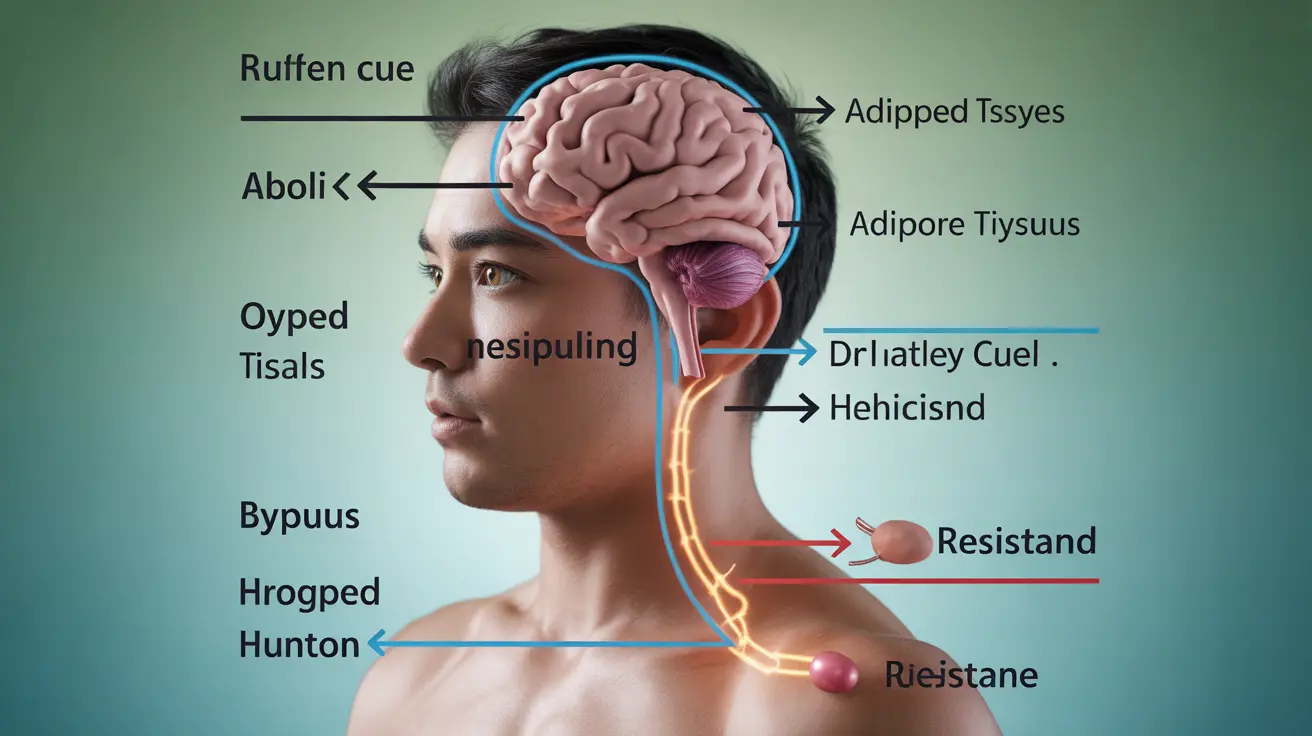Leptin resistance is a complex metabolic condition that can significantly impact your body's ability to maintain a healthy weight. This hormone-related disorder occurs when your body becomes less sensitive to leptin, a crucial hormone that regulates hunger and energy balance. Understanding leptin resistance is essential for anyone struggling with weight management or interested in metabolic health.
In this comprehensive guide, we'll explore the various aspects of leptin resistance, including its symptoms, causes, and potential treatment strategies. We'll also examine how lifestyle modifications and medical interventions can help improve leptin sensitivity and overall metabolic health.
Understanding Leptin and Its Role in Weight Management
Leptin is often referred to as the "satiety hormone" because it signals to your brain when you've eaten enough food. When functioning correctly, leptin helps maintain a healthy body weight by regulating appetite and energy expenditure. However, in cases of leptin resistance, these signals become disrupted, leading to various metabolic complications.
Signs and Symptoms of Leptin Resistance
Recognizing the symptoms of leptin resistance is crucial for early intervention and treatment. Common indicators include:
- Constant hunger, even after eating full meals
- Difficulty feeling satisfied after eating
- Strong cravings for high-calorie foods
- Unexplained weight gain
- Increased belly fat
- Fatigue and low energy levels
- Difficulty losing weight despite diet and exercise
The Connection Between Inflammation and Leptin Resistance
Chronic inflammation plays a significant role in the development of leptin resistance. When your body experiences ongoing inflammation, it can interfere with leptin's ability to communicate effectively with your brain. This disruption can create a cycle where inflammation promotes leptin resistance, which in turn can lead to more inflammation.
Managing Inflammation Through Lifestyle Changes
Several strategies can help reduce inflammation and potentially improve leptin sensitivity:
- Consuming anti-inflammatory foods
- Limiting processed food intake
- Getting adequate sleep
- Managing stress levels
- Regular physical activity
- Maintaining a healthy gut microbiome
Dietary Approaches to Improving Leptin Sensitivity
While diet alone may not completely reverse leptin resistance, certain dietary changes can significantly improve leptin sensitivity:
- Focus on whole, unprocessed foods
- Include protein in every meal
- Incorporate fiber-rich vegetables
- Limit sugar and refined carbohydrates
- Practice portion control
- Maintain regular meal timing
Exercise and Leptin Resistance
Regular physical activity plays a crucial role in managing leptin resistance and improving overall metabolic health. Exercise can help by:
- Reducing inflammation
- Improving insulin sensitivity
- Promoting healthy weight management
- Enhancing leptin signaling
- Increasing muscle mass
- Regulating hormone balance
Supplementation and Medical Interventions
While lifestyle modifications are essential, certain supplements and medical treatments may help support leptin sensitivity:
- Omega-3 fatty acids
- Vitamin D
- Magnesium
- Alpha-lipoic acid
- Prescribed medications (when appropriate)
- Professional medical supervision
Frequently Asked Questions
What are the symptoms of leptin resistance, and how does it affect weight loss? Leptin resistance typically manifests as persistent hunger, difficulty feeling full after meals, and challenges with weight loss despite diet and exercise efforts. It affects weight loss by disrupting your body's natural appetite and energy regulation systems.
Can leptin resistance be reversed through dietary changes alone, or are other treatments needed? While dietary changes are important, most cases of leptin resistance require a comprehensive approach including diet, exercise, stress management, and sometimes medical intervention. Lifestyle modifications work best when implemented together rather than relying on diet alone.
What role does chronic inflammation play in developing leptin resistance, and how can it be managed? Chronic inflammation can interfere with leptin signaling and contribute to leptin resistance. Management strategies include anti-inflammatory foods, regular exercise, stress reduction, and adequate sleep to help reduce inflammation and improve leptin sensitivity.
Are there any specific supplements or medications that can help improve leptin sensitivity? Several supplements may help improve leptin sensitivity, including omega-3 fatty acids, vitamin D, and alpha-lipoic acid. However, these should be used as part of a comprehensive treatment plan and under medical supervision.
How does regular exercise impact leptin levels and leptin resistance in individuals with obesity? Regular exercise can help improve leptin sensitivity by reducing inflammation, increasing muscle mass, and enhancing metabolic function. Both aerobic exercise and strength training can contribute to better leptin signaling and improved weight management outcomes.




